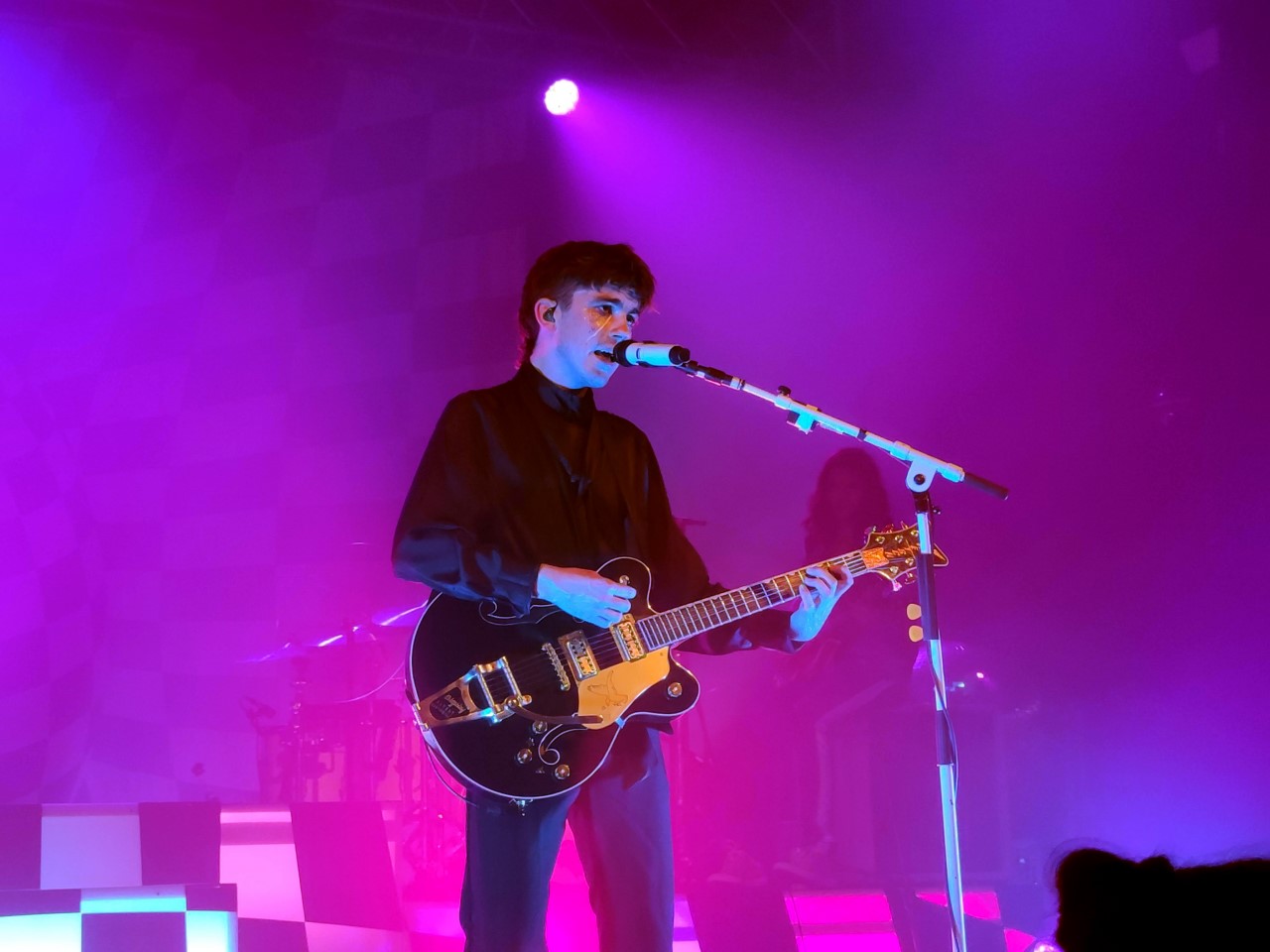Declan McKenna live review: an accidental frontman for a hopeless generation
O2 Academy Birmingham, Friday 24th September
Declan McKenna has been hailed as “the voice of a generation”, and the Zeros tour is McKenna at his best. Having first emerged on the scene in 2015 after winning Glastonbury’s Emerging Talents competition, McKenna has evolved from being a scrawny, naïve teenager to being one of the loudest voices in the contemporary music scene at the age of 22.
McKenna opened the gig with the explosive ‘Beautiful Faces’, the lead single of his long-awaited sophomore album, Zeros. His presence in the venue was clear – he is in sync with the crowd and ready to give it his everything. And despite the O2 Academy’s large 3000-person capacity, his captivating glitter-clad eyes and charismatic smile still appeared to follow your every move. By the end of the second song, ‘Rapture’, the crowd is blanketed in a sea of confetti, and an eruption of cheers and chants of “Declan McKenna” – sung to the tune of ‘Seven Nation Army’ by The White Stripes – filled the room.
It felt almost impossible for the electric atmosphere to continue throughout the entire gig, but bar a couple of slower songs, McKenna masterfully retained the crowd’s attention and maintained their excitement throughout the gig. And these slower songs, such as the Dylan-influenced ‘Emily’ or ‘My House’, an elegy to the loss of human interaction during the COVID-19 pandemic, provided some much-needed rest in between powerful anthems, and energetic upbeat songs. By the end of the night, the crowd was an amalgamation of sweat, stale beer, and of course, plenty of glitter.
When placed on stage with a glittery gold guitar, he suddenly becomes a master of his craft, and the realisation sinks in that he is no ordinary 20-something-year-old
What makes McKenna stand out – or not, for that matter – is how seemingly ordinary he is. He is about the same age as most people in the crowd, and he has an “everyman”, unassuming face. But when placed on stage with a glittery gold guitar, he suddenly becomes a master of his craft, and the realisation sinks in that he is no ordinary 20-something-year-old. He finely walks the line between unattainable rockstar and average person, a balance most artists struggle to strike. Despite his wordy, extravagant lyrics seeming to position him as a poet, and his Freddy Mercury-esque blasé attitude, when the crowd sings ‘Rapture’ back at him, they emphasise his rhyming of the word ‘nature’ with ‘Mrs Thatcher’. This sounds painfully out of place on the studio recording, but on stage his sly smirk after the lyric confirms his wit and self-awareness. And, once again, he is yet another uncaring, fun-loving young adult.
McKenna also stands out from most other artists on the scene in that he is at once a rock star and an activist. His breakthrough hit ‘Brazil’, which he wrote at only 16, is a sharp critique of the corruption present in the FIFA league. Similarly, ‘British Bombs’ is a deceitfully upbeat and catchy song criticising the British arms trade and the “good old-fashioned landslide” of “Britain being at war all the time”. His grandiose lyrics on disillusionment with out-of-touch politicians, the double-edged sword of social media, and struggles of the working-class resonate with the crowd, voicing the unheard fears and concerns of the many. Paired with his flamboyant fashion sense, his androgynous eyeliner, and his painted nails, McKenna has become an accidental role model for a hopeless generation.
When people incorrectly make sweeping statements such as: “nobody makes good music anymore” or “music isn’t as good as it was”, they must look no further than Declan McKenna. There is nowhere for McKenna to go other than up – not only has he expertly overcome the infamous ‘sophomore slump’, but his live performances also prove he is a force to be reckoned with. And at barely 22 years old, McKenna has a lifetime in front of him to become one of the biggest stars of this generation.

Comments